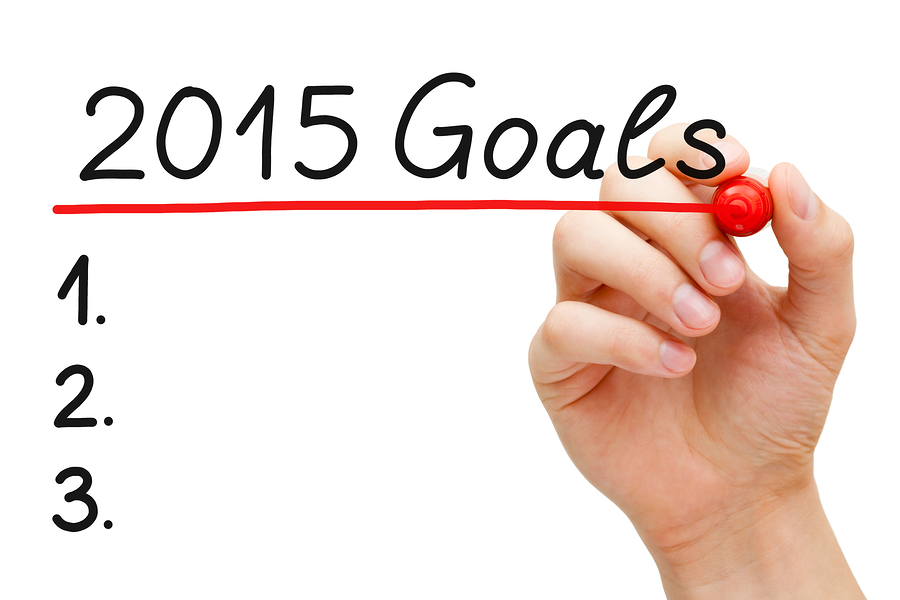Goal Setting For 2015
With the turn of the year comes a host of New Year’s Resolutions and good intentions, which many of us find hard to sustain as the months wear on. Setting goals for the year could be the key to achieving what you want.
We have some simple tips and tricks to help you identify and set realistic goals for 2015, and to stick to them.
The Big Picture
If you’re not sure what you really want from life, then make time to delve in to the big picture. Grab a piece of paper and pen, get comfortable, and ask yourself:
- What would I do if I have unlimited time and money?
- What would I do if I had no demands on me from home, work, or life?
- What did I used to love doing that I miss now, or am surprised that I did?
- What have I always wanted to do that I haven’t achieved?
- What would I do if I wasn’t afraid of failure?
- What would I like to achieve professionally or academically that I haven’t?
- What do I do now that I would like to do more of?
These are big questions, but the answers don’t need to be big. They could be as simple as ‘I would like to be a gardener, ‘I would see my grandchildren more’ or ‘I would volunteer’ or as huge as ‘I would see the Great Wall of China’ or ‘I would write a book about my life’. Write as many or as few things down as you can think of, keep them positive, and don’t self-edit.
If you find this a struggle, then list the things that you do or feel now that you don’t enjoy, and then flip these around so they become goals.
Come back to the list in a day or two and take another look at your answers. If there are any that are irrelevant, physically impossible, or that are influenced by other people’s opinions, score them out. Which stand out as the things you’d really like to do? Choose up to five, and get ready.
Be Smart
The ‘SMART’ method of goal setting will be familiar to some businesspeople, and can be helpful for personal goal setting too. The system can help you turn vague goals into specific actions.
Ask yourself these questions for every goal on your list, and write down your answers.
Specific:
- What is the goal?
- Why do I want to do this?
- What do I need to achieve it?
- What could prevent me from achieving it?
Measurable:
- How will I know when I’ve accomplished my goal?
Attainable:
- Can my goal actually be achieved?
- What support, finance or skills do I need to accomplish my goal?
Relevant:
- Is this goal really what I want to do?
Timeline:
- When do I want to start working towards this goal?
- When do I want to have achieved this goal?
- What is my timeline for the period in between – in six months, one year, five years?
Make Your Plan
Now that you’ve narrowed down your goals and made actions for each one, you can prioritise what’s there so you’re concentrating on one at a time.
It’s easier to achieve goals and feel like you’re getting somewhere if they are in bite sized chunks, so you should break each big goal down into smaller, achievable goals.
Once you’re ready, write up a proper plan with a clear timeline, breaking down what you need to achieve and when to reach your goal.
For example, your goal could be ‘I want to be fit’. To achieve this you could say ‘I want to be fit enough to run a 5k charity race in June’. You would then talk to a doctor about your fitness, research training plans for runners, purchase running shoes, sign up for the race, run a few times every week, get donations for your run, and finally attend the race.
What other tips would you give people to set realistic goals?
Rachel - Silversurfers Assistant Editor
Latest posts by Rachel - Silversurfers Assistant Editor (see all)
- Get Ready for Stir-up Sunday - November 22, 2024
- Warming Soups - November 15, 2024
- What’s your favourite scary film? - October 26, 2024
- Easy Traybakes for National Baking Week - October 14, 2024
- Practical tips for living with arthritis - October 11, 2024





















